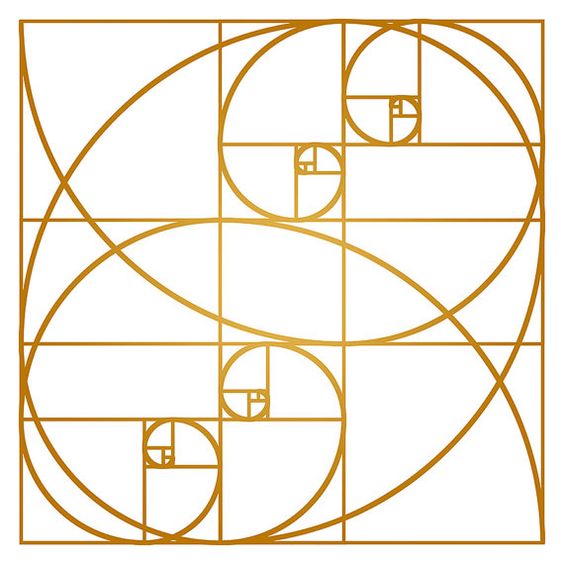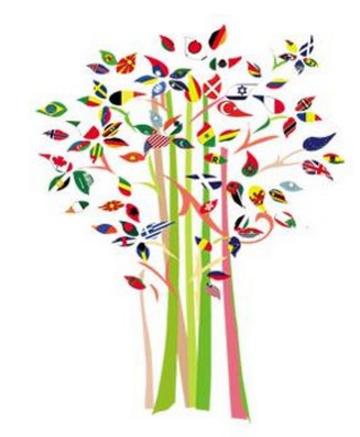Speis means ‘breath’ and connotes force, vitality and warmth
Speis means ‘spirit’ and connotes spark, creativity and force
Speis means ‘spirit’ and connotes joy, aspiration and courage
Speis means ‘breath’ and connotes effort, commitment and energy
Speis means ‘spirit’ and connotes life, wind and motion
Speis means ‘spirit’ and connotes light, joy and presence
Speis means ‘spirit’ and connotes light, joy and presence
Speis means ‘breath’ and connotes force, vitality and warmth
Speis means ‘spirit’ and connotes life, wind and motion
Speis means ‘breath’ and connotes effort, commitment and energy
Speis means ‘spirit’ and connotes spark, creativity and force
Speis means ‘spirit’ and connotes joy, aspiration and courage
About Speis
There is a crack in everything.
That’s how the light gets in.Leonard Cohen
Why Speis Paradox?
Speis (pronounced spaze) Paradox is a puzzling name for a website, and I’ve been frequently told to change it, because puzzling is bad in marketing. Nonetheless, I decided to stay true to what the name means to me, the feeling it represents.
After a lifetime in a career studying human psychology, I have come to the conclusion that the most powerful force in human motivation is love, aspiration, and spirit. (Here I put them in a single bucket.) I believe I’ve had a better than average exposure to some of the powerful forces that work on us humans – first, working as a clinical psychologist and psychoanalyst privileged to deep personal confidences; second, moonlighting as a forensic psychologist in the legal and courtroom context – and everything else I’ve run into in the bucket of life.

Aspiration
In the name Speis Paradox, in the website, and in my practice, I wanted to capture aspiration. Aspiration as the driving force of my own work and practice; and the aspiration I believe most people hold for themselves, including my clients.
From the point of view of individual aspirational content, it is not easily captured, even at face-value. Some people aspire to make a difference, others for more prestige or power in order to make that difference. Some value security; others want to do something interesting and engaging. Yet underneath the contents of a motivation, I have repeatedly found that what seems to bring people the most satisfaction and freedom is finding a way – aspire — to be a positive, contributing force.
How it translates into coaching goals can vary widely. For some it could be finding a way to respect and get along better with their co-workers. For others, forgiving themselves of their own unconscious grudges against their selves; taking responsibility in a way that makes them feel proud; or softening something that makes them feel more kind.
Where the word ‘Speis ‘ comes from
Unable to find an English word to capture this dynamic, I found one in a proto-Indo-European dictionary. Indo-European is the class of languages that encompasses the most number of spoken languages in the world today, including English, Hindi, Greek, Polish, Kurdish, Irish, Latvian, Persian, German, Albanian, Russian, French and more.
Proto-Indo-European refers to the language that was spoken before all these other languages broke out and became individualized. So it’s the closest we have to being, if not the mother of all human languages, then the mother of the most number of languages spoken today. This was important because my aspiration is to help people with problems and solutions that everybody has, regardless of where they are from or what they do.

What does ‘Speis‘ mean?
Speis is the proto-Indo-European word that means “spirit” or “breath.” It is synonymous with the animating force: life, wind and motion. It connotes lightness, presence, hope, courage, devotion, loyalty, warmth, aspiration, joy, force and vitality. I chose the term to catch the universality of the force that the word refers to, a force composed both of dynamism/life and presence/warmth. I chose images for this website to correspond to the idea of Speis.
The Paradox in Speis Paradox
On the one hand, Speis speaks to a desirable, sought-after positive energy that can drive energy and effort, provide direction, and accomplish goals. Who wouldn’t want it? And why can’t we get it more easily, even when we choose? Because after all, everyone aspires to be the best version of ourselves.
On the other hand, Paradox speaks to the groundedness and contextualization of real-life problems. Paradox acknowledges real life, in which every event is enmeshed in its own unique context and apparent limitations. Speis is aspiration; Paradox is humanity.
On the one hand, to be at our best is to be deeply happy. On the other hand, we find ourselves all too frequently encumbered in realizing that apparently simple aspiration. Real life moves very quickly, and modern functioning calls on people, more and more, to keep pace or fall off. The complex demands of functioning in the real world makes compromise and imperfection a necessity – never mind dealing with the internal cracks that limit us within our own lives and personalities.
Fortunately, as Leonard Cohen says, these cracks are potentially our best ally. Cracks in our personal makeup, our behavioral habits and emotional vulnerabilities, harbor deep energy – energy that can either be viewed as an enemy to be battled and suppressed; or energy that can open us to vitality and flow. Inside these cracks lie force vectors that can paralyze individuals and organizations with dysfunction; or which can transform stagnation and frustration to resilience and commitment.
When I was still training, one of my clients was a very religious woman. Her religion (not to mention her personality) had given her the idea that the best way to be in life was to be as nice as possible: to always be smiling, to speak softly, and offer no resistance to anybody or feel anger. Yet it was not hard to sense that underneath the surface she was seething with some kind of internal protest that she did not allow herself to be conscious of. For her the paradox was to become aware of and allow what she had judged to be unsavory. Allowing herself to realize that sometimes she didn’t feel like being nice was one path for her to realize her aspiration to be a good person.
The Underlying Philosophy of Speis Paradox
In other words, the coaching approach in Speis Paradox is the pairing of authenticity to aspiration. Authentic — another word for being real — refers to that which is real: real-life challenges and circumstances, the reality of complicated relationship dynamics, the morass of real feelings, the stumbling blocks of old real wounds and real habits, and the stiff demands of performing and functioning in real life.
To aspire is to want; to want is to intend; and to intend is to focus will and energy. To focus will and energy is to choose.
These two vectors are in some ways diametrically opposed, and yet most people juggle them constantly.
The ideas I’ve described here are not mine originally. They are all ideas are rooted in ancient wisdom traditions, which repeatedly find different ways to be current, popular and relevant. For myself I learned or discovered them both personally and professionally – from Buddhist meditation to psychoanalysis to brain research on psychology.
These ideas emphasize the power of truth, the energy of authenticity, and the strong power of positive investment (love), which in organizations and in life can take the form of good citizenship, personal motivation, generosity, and joy.
The Speis Approach to Coaching
Paradoxes: Inner/Outer, Slower/Faster, Present/Future
Business, and for that matter, much of the world, is future-oriented. The thing that matters is to get results, achieve goals, make numbers, on time, and take practical action to secure safety and prosperity. This is how we get rewarded. That would be fine if it worked. Of course, there is an important place for the practical hum of smooth-running operations whose output must be predicted – our whole world depends on it. Trains and planes should run on time; schools should be open; manufacturers must coordinate supply chains, assemblers and distributors. Failure would lead to dysfunction and chaos. But the real world we live in, during our times, has become skewed toward moving faster, living for the future, and focused on outside wins.
In fact — what all the social and human and brain sciences and research tell us – is that the process of change points to the importance of slowing down, embracing presence and the present moment, and tuning inward. Too much loyalty to fast/future/outer orientation disconnects people from their native rhythms and leads to stress, eventual breakdown, and a sense of depersonalization and dehumanization.
In helping people, I have discovered that, while at first it can feel alien or difficult, slowing down, looking inward and experiencing presence can be deeply nourishing and exponentially enable practical effectiveness. This is more than borne out by science and how the brain works. The nervous system and human physiology operate on a rhythm that people get more out of by working with, than against. The brain loves present-moment focus. Non-stop future-oriented planning, worrying, thought recycling fags it out so that it loses its resilience for creation and new ideas. The deprioritization of emotional processing stops up every aspect of human functioning, eventually telling in severe compromise.
The paradox is that we need both. Outside behaviors are most effectively changed through inside work. Slowing down and stepping back gets people out of ruts and helps them to move forward. Though many are afraid of losing ground in the race to success, the deeper you go to move the levers of your own growth, the more exhilaration, positive energy, life force, and sustainable happiness you can source.
In my coaching work and all my work this is the start to help clients source their potential — through a bevy of approaches and techniques, but all based on a foundation of respectful, mutual inquiry, curiosity, and optimism.
Moving the Needle
Paradox means finding the right balance between reflection and action, intellect and emotion, forward propulsion and centered grounding. This means my work with clients starts with understanding the specific and concrete problems and contextual challenges you are trying to solve.
My training has been crafted to give me a repertoire of communication styles to connect with where people are at. I am comfortable in, and able to toggle between, direct and indirect, informal and professional, practical — and entirely comfortable helping clients navigate the amorphous realm of inner life. Frequently I help clients make connections between their cerebral and behavioral habits to body- and emotion-embodied understanding. To that end I use a lot of metaphors, images and stories to help clients connect to, and find levers of change within themselves.
Befriending Presence
I used to view my interest in fitness, yoga and mindfulness as separate realms from my profession — as part of my personal and spiritual life respectively. Now I see these as interchangeable. Each involves cultivating the capacity for presence, and the value of nurturing and respecting the body. Each cultivates curiosity, listening, and the willingness to appreciate and enjoy whatever is going on right now.
The quality and skill of befriending is the key activity whether you are talking about perspective-taking in successful negotiations, or summoning poise to look at fast-moving forces in the chaos of life. It is befriending, as opposed to antagonizing, tensing up, or resisting, that guarantees success. Befriending is a key aspect of mindfulness, resilience, conflict resolution and human growth in general.
Being able to accept all aspects of yourself and your experience with compassion and joy; developing the tolerance for other people’s behaviors and states of mind; accessing poise amidst chaos – this is what allows people to change and grow at warp speed – even while it is easier said than done.
